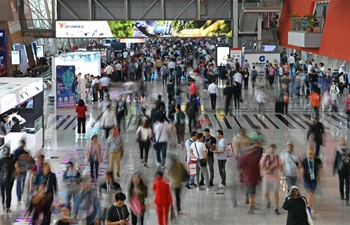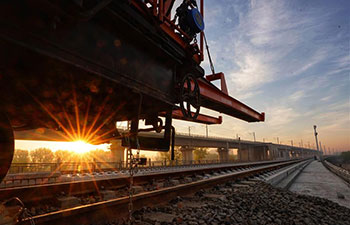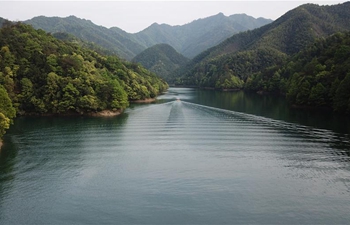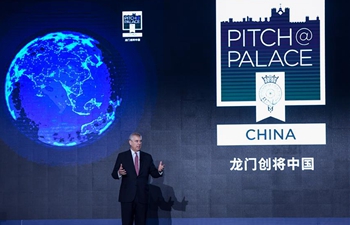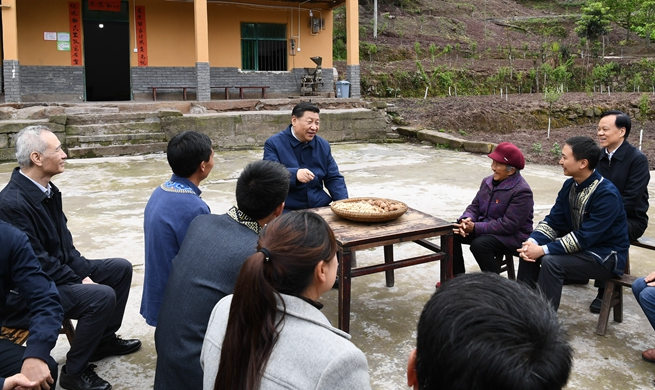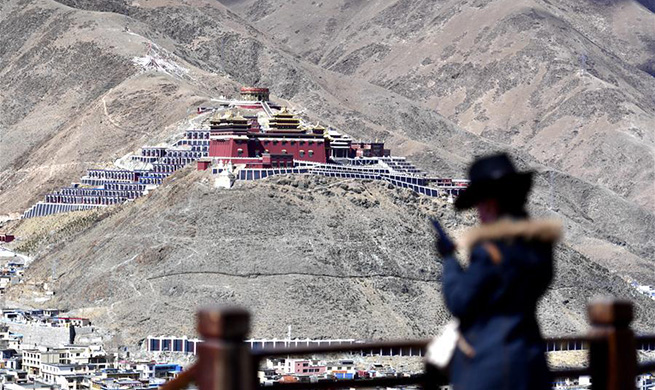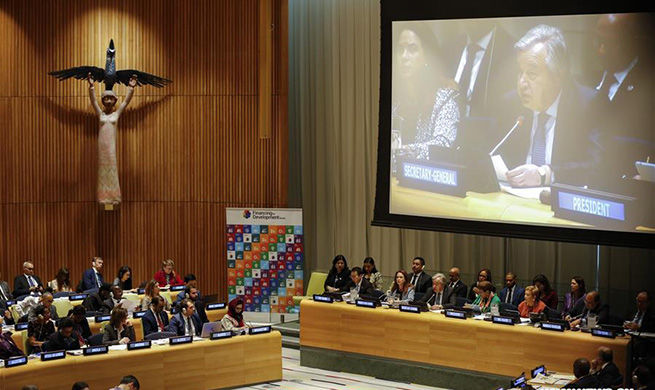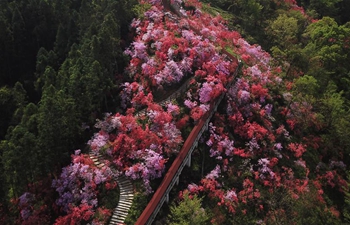by Lu Huaiqian
WELLINGTON, April 16 (Xinhua) -- New Zealand should be more active in participating in the Belt and Road Initiative (BRI) cooperation, otherwise New Zealand may miss one of the largest multilateral economic projects of this century, said an expert on Tuesday.
Simon Draper, executive director of Asia New Zealand Foundation, who attended the first Belt and Road Forum for International Cooperation in 2017, is set to leave for the second version of the event to be held in Beijing later this month, when the country's Minister of Trade and Export Growth David Parker is expected to lead a business delegation to the highly-regarded forum.
Speaking in an exclusive interview with Xinhua ahead of the forum, Draper said New Zealand should try to understand BRI better, as a partner of China.
"It's clear from my observation and participation two years ago that this is a very big and important project for China and New Zealand is a friend of China. So if it's important for China should be important for New Zealand. Moreover, this is a project which has an enormous scale. It's more than just about infrastructure and economy," he said. "We should participate with its benefit for China and benefit for New Zealand."
Aiming to tackle key infrastructure gaps across Asia and beyond thus connecting countries and economies in new ways, the BRI has a great deal of positive potential, said Draper.
The BRI, a reference to the Silk Road Economic Belt and the 21st Century Maritime Silk Road, was initiated by China in 2013 with the aim of building a trade, investment, and infrastructure network connecting Asia with Europe and Africa along the ancient trade routes.
"For New Zealanders, the Belt and Road has really only entered our collective consciousness over the past couple of years. New Zealand has a memorandum of arrangement on the Belt and Road signed during Premier Li Keqiang's visit in May 2017. Nearly two years since that visit, New Zealand is still trying to figure out what exactly it means and our role in it," said Draper.
According to a recent survey by the Asia New Zealand Foundation, 44 percent of New Zealanders have heard of the BRI and about a quarter of New Zealanders say they know at least a little bit about it. Those figures have grown since the foundation's earlier surveys on the topic.
"New Zealanders are aware of the Belt and Road, but they don't really understand it very much. So, there's some work for the Chinese government and for organizations like ours to help explain the Belt and Road," said Draper.
"The Belt and Road is most easily understandable as an infrastructure project - but if anyone still thought it could be a quick-fix for Auckland's traffic woes, I'm afraid to say that's not going to happen. It is more likely that New Zealand will be involved in improving systems and processes that connect economies," said Draper.
Though far from the historic Silk Road, Draper believes that at its core as a small, export-led economy, New Zealand traditionally prefers to be "in the tent" rather than out when it comes to new international initiatives.
"Getting involved early on gives us a chance to help shape new projects and advocate for standards that align with our interests and values - the most recent example being the Asian Infrastructure Investment Bank," said Draper.
New Zealand was the first developed western nation to join negotiations to set up the Asian Infrastructure Investment Bank (AIIB), which is closely associated with the BRI projects.
"In the case of the Belt and Road, New Zealand will be pushing for things like inclusivity, transparency, developments that respect sovereignty," he said.
"Being involved doesn't mean that New Zealand will have to roll over and put aside its values and interests. But if we walk away completely, not only will we not be able to influence even in a small way, we may miss out on one of the biggest economic projects of this century."
As a developed country, Draper said New Zealand is more likely to be involved in improving the systems and processes to support BRI, playing an important role in software rather such as trade facilitation (biosecurity, customs clearance, for instance) research collaboration and commercialisation; and in the creative sector other than in infrastructure.
Meanwhile, Draper said that South American countries are actively participating in the BRI, in which New Zealand can play a pivotal role.
"When you see the geographical location between China, New Zealand and Chile, you can find that New Zealand happens to be in the middle of China to South America. New Zealand can play a role as a conduit between China and South America."
